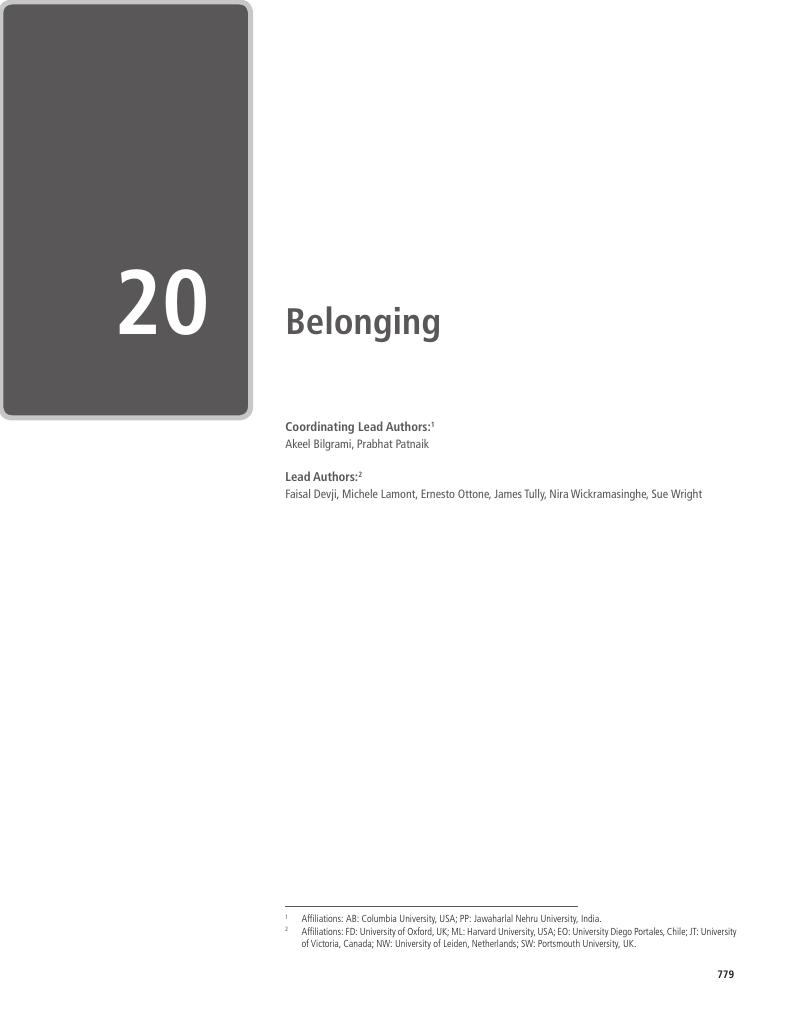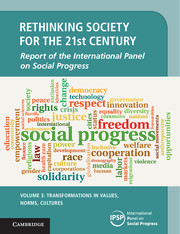Book contents
- Rethinking Society for the 21st Century
- Rethinking Society for the 21st Century
- Copyright page
- Contents
- Introduction to Volume 3
- Transformations in Values, Norms, Cultures
- 15 Social Progress and Cultural Change
- 16 Religions and Social Progress: Critical Assessments and Creative Partnerships
- 17 Pluralization of Families
- 18 Global Health and the Changing Contours of Human Life
- 19 The Contribution of Education to Social Progress*
- 20 Belonging
- Concluding Chapters
- Volume 3 Authors
- Index
- References
20 - Belonging
from Transformations in Values, Norms, Cultures
Published online by Cambridge University Press: 05 July 2018
- Rethinking Society for the 21st Century
- Rethinking Society for the 21st Century
- Copyright page
- Contents
- Introduction to Volume 3
- Transformations in Values, Norms, Cultures
- 15 Social Progress and Cultural Change
- 16 Religions and Social Progress: Critical Assessments and Creative Partnerships
- 17 Pluralization of Families
- 18 Global Health and the Changing Contours of Human Life
- 19 The Contribution of Education to Social Progress*
- 20 Belonging
- Concluding Chapters
- Volume 3 Authors
- Index
- References
Summary

- Type
- Chapter
- Information
- Rethinking Society for the 21st CenturyReport of the International Panel on Social Progress, pp. 779 - 812Publisher: Cambridge University PressPrint publication year: 2018
References
- 1
- Cited by

